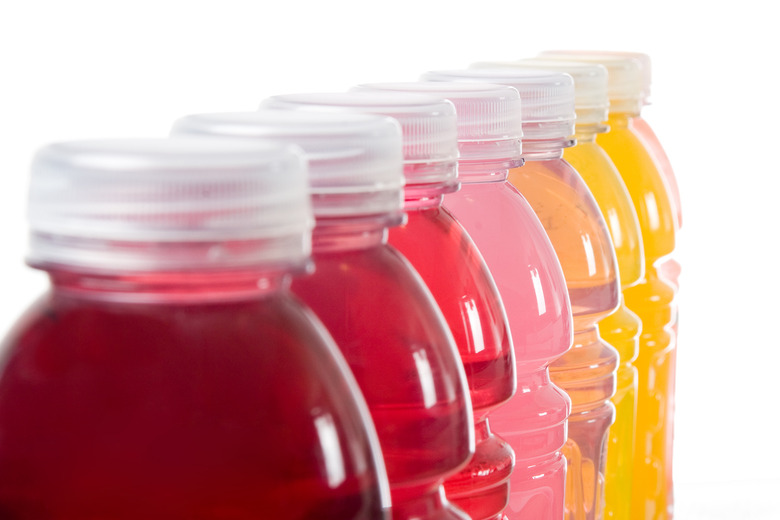9 Negative Effects Of Sports Drinks
Turn on the television or open your favorite magazine and you're likely to see an abundance of advertisements for Gatorade, Powerade, and other sports drinks bombarding you with claims that they'll provide the essential nutrients needed to help you achieve a superior workout while keeping you hydrated. Thanks to these drinks' high-profile brands (Gatorade is made by PepsiCo while Powerade is made by Coca-Cola), the splashy advertisements can be both intriguing and convincing. Unfortunately, the claims they make are often far from the truth, as many sports drinks are not really what they appear to be.
Click here to see the 9 Negative Effects of Sports Drinks (Slideshow)
Not to be confused with caffeine-boosted energy drinks like Red Bull or Monster, sports drinks are sugar-sweetened beverages that contain sodium and other electrolytes that are lost during exercise. While they may seem harmless, a sports drink is not the best beverage choice for the casual athlete. Alana Fiorentino, RD, CDN, who is a clinical dietitian at SUNY Downstate Medical Center in Brooklyn, N.Y., states, "In addition to the fluid content, sports drinks contain a significant amount of calories, mostly from sugar, and some electrolytes including sodium and potassium. For the average person that doesn't participate in regular high-intensity workouts, the added nutrients provide no additional benefits, and can lead to gradual weight gain over time."
The Academy of Nutrition and Dietetics and the American College of Sports Medicine are in agreement. Both only recommend the use of sports drinks for intense exercise lasting more than an hour. For the average athlete, one who isn't training for a triathlon but rather looking to burn off a few extra calories on the treadmill, sports drinks are not the best choice. So before you reach for your next bottle on your way to the gym, consider the following negative effects of sports drinks. You may find yourself filling up your water bottle instead.
